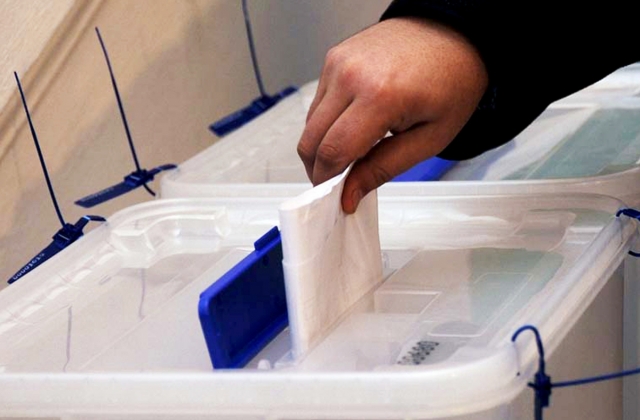Economic effect of elections

What effect do elections have on economy? Generally, it’s accepted to consider—not a positive one. To some extent elections mean uncertainty. And uncertainty generates expectant moods.
Bid deals are being postponed prior to summing up election results, so that uncertainty was eliminated and rules of the game were more clear. How all this works in case of Armenia? Do elections (electoral processes) have an effect on economy? If yes—how and to which extent? This question is heard in different discussions. Opinions differ as well.
A part considers that elections have a negative effect due to the abovementioned reason. Even car mechanic Poghos having no connection to elections postpones buying a TV set saying—let’s wait for the election results. Businessmen are waiting as well. Everybody waits and they altogether decrease economy activeness. This is one side of the coin.
There are people not sharing the abovementioned opinion. They say the so-called expectation is exaggerated, no matter how regretful it may be, in our country election results are almost perceived as foregone and few people consider that regime change will be recorded through elections, i.e. “let’s wait for elections to pass” expression is just a convenient excuse not to do what one desires.
There is a third opinion as well, according to which elections not only negatively impact on Armenia’s economy, just the contrary—in a short-term perspective they activate economy. Thus, different political powers launch campaigns, during which they purchase certain commodities and services, i.e. elections activate advertising market, increase demand for printing services, and create at least temporary, but many workplaces (in campaign headquarters) and etc. However, the most important factor here, of course, is election bribe.
The main thesis is as follows: there are different-caliber oligarchs involved in election processes. They possess large financial resources on their bank accounts or “under the matrass”. During the campaign these people withdraw money from the banks and give it as election bribe. That money enters into circulation, directed to consumption and accordingly, activates economy. To which extent? It depends on election bribe volume and number of people taking it.
Around 2.5 million voters have been registered in Armenia (upon data issued by RA Central Electoral Commission). 55-60% people take part in national elections (e.g. according to CEC number of voters in 2013 presidential elections comprised 1.5 million). Based on different assessments election bribe is anticipated by 5-10% of voters during elections. That very percent of people don’t demand money, however, when proposed, they don’t refuse. In short, we may approximately suppose that 15-20% of people take bribe, i.e. 220-300 thousand people.
Bribe size is very changeable. 5000 drams have become symbolic while speaking of elections, however, there was information about 10 even 20 thousand drams (by the way, it was even touched upon that some candidates propose up to 100 dollars).
However, in case of 5000 drams it turns out that during national elections election bribe amounting around 1-1.5 billion drams is being delivered, and in case of 10 thousand drams—2-3 billion. Can 3 billion (at least in a short period—1 month) change anything in economy? Hardly. It should be stated once again, that these are rough calculations not based on facts.
Practically it’s impossible to find out how much money was spent on election bribe. Of course, theoretically it’s possible to observe change of current accounts and deposits of Armenia’s citizens per months, or changes of volumes of cash beyond the system to understand how much money was withdrawn from bank accounts and entered into circulation as election bribe. Economic growth or economic activity indices per months may be combined as well to understand how the dynamics has changed after elections.
However, on the whole it won’t give anything, as, firstly, any influence is manifested after some period, and besides that in post-election months even in case considerable economic growth is observed, one can’t insist that change is conditioned by elections. All this means to measure real influence of election processes it’s necessary to carry out serious analysis on account of influence of all factors impacting on economy. It’s a rather difficult job on account of high level of shadowiness, i.e. both allegations that elections negatively influence on economy, and its opposing opinions are simply made on intuitive level. And if there is no scientific analysis under them, such allegations can’t be taken for granted.
Why was this article written, if it’s impossible to touch upon the influence? In fact, elections have an effect on economy, however, not immediately, but in a long-term perspective. Not the money spent during election process or business consumer atmosphere have an effect, but legitimacy of elections. Forged elections don’t allow implement serious reforms in the country, have independent and productive judicial system, accountability, transparency, competitive environment and etc. Electoral fraud contributes to development of “lukewarm” atmosphere, eliminate trust and belief toward our own state, contribute to migration and capital flow.
Rigged elections together with their implications are the biggest anti-advertisement, which ban foreign investment entry to Armenia. An oligarch candidate giving election bribe amounting 5 million dollars, in fact, does much harm, than it usually seems. He seizes twice as much money from the population by raising prices in the upcoming 5 years, but leads the country to recession for 5 years.
Examples have been brought regarding rigged and illegitimate elections as we haven’t recorded fair elections in the period of recent 20 years, i.e. despite the fact how much election bribe activated the market, or to which extent election expectancies made economy passive, real serious result of elections will be observed in the forthcoming years. Economic hardship we currently face is mostly a result of formerly rigged elections. And economic effect of upcoming parliamentary elections will depend on the degree of their legitimacy.
By Babken Tunyan

























